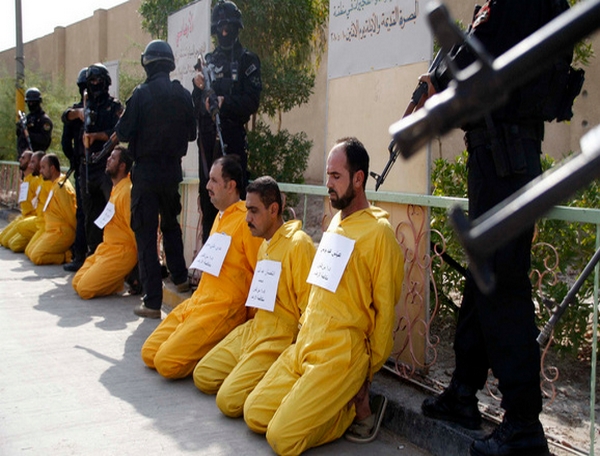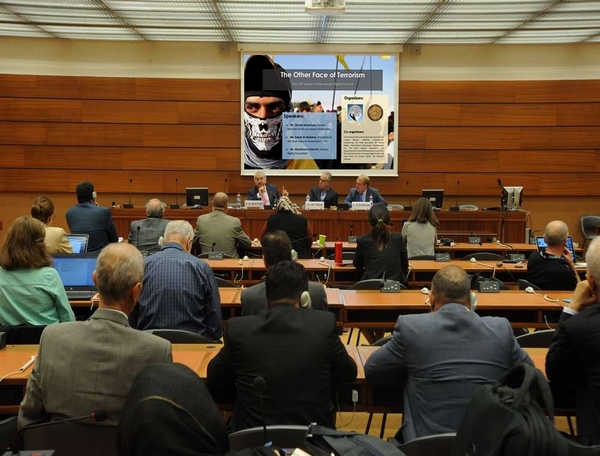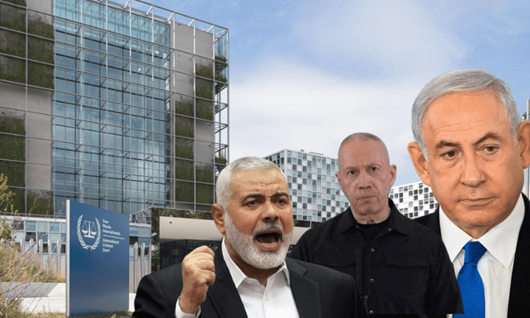16 February 2004
Hans von Sponeck, Former UN Assistant Secretary General and UN Humanitarian Coordinator for Iraq, President of Geneva International Centre for Justice.
The message to neo-conservative policy-makers in Washington, DC, is clear: Security cannot be achieved by attacking the symptoms of global discontent over American foreign policy, according to a former UN official.
"If you limit your intervention to (attacking the symptoms), you will never put an end to what we are now seeing - a rise in protest over the fact that we are increasingly dominated by a small group of people who want to tell us how to run our lives," said Hans Von Sponeck, former UN Assistant Secretary General and Humanitarian Co-ordinator for Iraq, in an exclusive interview with Gulf News.
In order to make a significant contribution to a stable global community, it would make more sense to "talk about human security, education, health and good services in our respective countries", he said.
Von Sponeck resigned from his UN post in 2000 because he felt "the programme I was directing could not do justice to the needs of the Iraqi people", who were crippled by the economic sanctions and "exploited for somebody else's political interest".
As with most critics of America's policies vis-a-vis Iraq, he believes the current crisis is a result of short-sightedness on the part of Washington.
"When the war began in March of last year, the Iraqi people were already in a very precarious state. They had behind them 13 long years of sanctions; 13 long years of inadequate supplies for life, food, medicine, education, water… Nothing was the way it had been at one time in Iraq before 1990. So they were very weak physically and to some extent mentally," he said.
"After a short war of less than five weeks, there should have been a massive infusion of electricity rehabilitation, improvement of water supplies, food and medicine… None of this happened because while the Americans were well-prepared to fight the war, they were totally unprepared to introduce peace." The question he asks: "Why were they so short-sighted?"
"My answer is they had a totally wrong impression of the reaction of the Iraqi people. Many Iraqi people were no doubt happy that the dictator was gone, but that doesn't mean they were automatically happy to see foreign troops on their soil.
"And this was the big surprise for the Americans. That the flowers, the 'salams', did not come. What came was: 'Thank you, he's gone, but now you can go, too.' And therefore the preoccupation of the Americans today is with security... But they do it in such a wrong way that they create more negative reaction."
When the average Iraqi sees American soldiers violating basic Iraqi values and norms of behaviour on a daily basis, it creates a lot of resentment, he says.
"But the interpretation by the Americans and the British is that these are leftovers of the Baath party, leftovers of Saddam Hussain's supporters and some Al Qaida infiltrators," he said.
While it may have started with "a few loyalists", the discontent has gained more ground, he explains, when the people saw there was no promise of normalcy - "no electricity, no water supply, no allowing their children to go to school".
Von Sponeck holds the behaviour of the US troops responsible for spurring people who would never have objected to a new beginning in Iraq, to reacting violently.
"Today we have chaos. Today we have anarchy. Today we have even what I never thought could happen: The possibility of a break-up," he said.
"You have a very well-organised but low-profile Shiite community with Al Sistani; you have a deeply troubled Sunni minority that is angry in this Baquba-Fallujah-Baghdad triangle; you have the Kurds who have come into this with a huge amount of expectations..."
He believes the differences between these ethnic and religious groups are becoming increasingly difficult to reconcile, which further complicates the return to normalcy.
Many critics, including Von Sponeck, now argue that this tragic scenario is "the best evidence that the work of the UN should have been given a much more patient hearing, before they decided to ignore the international community, and go ahead in interpreting Resolution 1441 in the way they wanted…"
Von Sponeck also laments that the Arab League and the UN might have done more to prevent the war. But, he concedes, "if you have a government like the US that is so convinced of its moral superiority, so convinced that it has the military strength to do anything they consider as correct", efforts might have been futile anyway.
"The Americans are, like it or not, a superpower on their own... And in the Gulf, the Middle East, and Europe, we are all paying the price now, because the confrontation that we saw on TV in Iraq is a confrontation that is spreading globally. There is so much anti-American attitude all over the place," he said.
Still, he says the Americans are now beginning to realise how much more difficult it is to introduce peace in a country.
"It's easy to win the war, but as one of my countrymen 200 years ago said: 'If you go to war, you must know what kind of peace you want'... And the Americans didn't know what kind of peace they wanted," he said.
He refutes Washington's noble assertions that the purpose of going to war was to uphold democracy and human rights.
"It's about power, and even if they say every day it's not about oil, it's also about oil. It's power and oil and the right to decide who gets these important energy resources, and that determines what happens in Iraq," he said.
He says it is up to the governments in Europe and the Middle East to sound the alarm and to warn "our American friends" that they are going about things in a very wrong way.
"This is not the approach that will reduce terrorism. Don't come up with simplistic explanations, like this is Al Qaida. What is Al Qaida? Show us there is an organised Al Qaida structure. There is no organised Al Qaida structure. This is only in the minds of people who want to find an explanation for the incredible mess they have created in Iraq," he said.
"If Europe and the Arab countries continue to keep a low profile, we will not manage to get the world out of this very serious confrontation between one group that has the military and financial means and also the belief - something new in Western politics - of this moral absolutism... and a majority of countries that disagree with that, and don't have the courage to say it in very strong ways at the political and government levels, but have other ways of expressing..."
Some may show their displeasure by boycotting this or that, he says, while others will resort to extreme expressions of anger in the form of terrorism.
By Bassma Al Jandaly and Tanya Goudsouzian, http://www.informationclearinghouse.info/article5669.htm
Documenting and reporting human rights violations in Iraq
Executions
Human Rights Violations in the context of fight against terrorism
Peaceful protests






Documenting and reporting human rights violations in Iraq
| Executions | Human Rights Violations in the context of fight against terrorism | Peaceful protests | ||||
 |
 |
 |
||||
 |
 |
 |
||||







